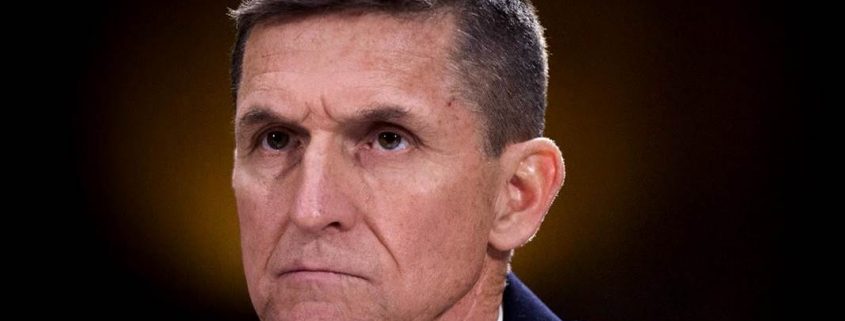Raw Versus Cooked: Could NSC Monitor FBI’s Investigation?
Multiple people,including Bart Gellman and Josh Marshall, are now arguing that the reason Ezra Cohen-Watnick and Michael Ellis found intercepts involving Trump’s people is that they were monitoring FBI’s investigation of the investigation.
I certainly think the Trump people would like to do that — and would be willing to stoop to that. I even believe that the response to the Russian hack last year had some counterintelligence problems, though probably not on the FBI side.
But there are some details that may limit how much the NSC can monitor the investigation.
First, Devin Nunes has always been very clear: the intercepts he was shown have nothing to do with Russia. That’s not, itself, determinative. After all, Cohen-Watnick and Ellis might have found a bunch of Russian intercepts, but only shared the non-Russian ones so Nunes could make a stink without being accused of endangering the investigation. Also, it’s possible that intercepts involving other countries — most notably Turkey, but there are other countries that might be even more interesting, including Ukraine or Syria — would impact any Russian investigation.
Also note that among the many things Nunes appears not to understand about surveillance is that there are two ways an American’s name can be visible outside the circle of analysts doing the initial review of them: their names can be put into finished intelligence reports that get circulated more broadly, with customers asking to have the name unmasked after the fact. Alternately, their names can be found off of subsequent searches of raw data. At the NSA and CIA, searches for US person content are somewhat controlled. At FBI they are not only not controlled, but they are routine even for criminal investigations. So if, say, General Flynn (or Paul Manafort) were under investigation for failing to register as a foreign agent, the FBI would routinely search their database of raw FISA material on his name. (These are the “back door searches” Ron Wyden has been screaming about for years, concerns which people like Devin Nunes have previously dismissed on national security grounds.) And we have every reason to believe that counterintelligence intercepts of Russians in the US are among the raw feeds that the FBI gets. So if Flynn had conversations with Russians (or Turks) in the US, we should assume that FBI saw them as a routine matter if Flynn became the subject of an investigation at all. We should also assume that the FBI did a search on every Sergey Kislyak intercept in their possession, so they will have read everything that got picked up, including all recorded calls with Trump aides.
On March 15, the House Intelligence Committee asked the NSA, CIA, and FBI for information on unmasking. I don’t believe that request asked about access to US person names on subsequent searches or raw material. Furthermore, at least as of last week, the FBI was not rushing to comply with that request. As I noted after the Jim Comey hearing before HPSCI, none of the Republicans concerned about these issues seemed to have any basic clue about FBI’s searches on raw data. If Nunes doesn’t know (and he appears not to), it’s unlikely Ellis knows, who was until this month Nunes’ aide.
But there’s one other thing that may prevent NSC from obtaining information about the investigation: FBI sometimes uses what are called “ad hoc databases” that include raw FISA data (and probably, post EO 12333 sharing rule changes, raw EO 12333 data) tied to particular investigations. It’s unclear what conditions might necessitate the use of an ad hoc database (see page 25ff for a discussion of them), but if security concerns would encourage their use, it would be likely to have one here, an investigation which Comey described as being so sensitive he delayed briefing the Gang of Four. Ad hoc databases are restricted to those working on investigations, and include specific records of those authorized to access the database. So if FBI were using an ad hoc database for this investigation, it would be even harder for the NSC to learn what they were looking at.
If the FBI’s investigation relies on raw intelligence — and it would be unfathomable that it does not, because it would probably receive the raw FISA data tied to such an investigation routinely, and EO 12333 sharing rules specifically envision the sharing of raw data associated with counterintelligence investigations — then the NSC’s access to finished intelligence reports would provide little insight into the investigation (Nunes was a bit unclear on whether that’s what he was looking at, but the entire premise of his complaints is that these were finished reports).
But while we’re worrying about whether and how Trump would monitor an investigation into his aides, remember that in 2002, Jay Bybee wrote a memo authorizing the sharing of grand jury information with the President and his close advisors including for counterintelligence investigations.
In addition, the Patriot Act recently amended 6(e) and Title III specifically to provide that matters involving foreign intelligence or counterintelligence or foreign intelligence information may be disclosed by any attorney for the government (and in the case of Title III, also by an investigative or law enforcement officer) to certain federal officials in order to assist those officials in carrying out their duties. Federal officials who are included within these provisions may include, for example, the President, attorneys within the White House Counsel’s Office, the President’s Chief of Staff, the National Security Advisor, and officials within the Central Intelligence Agency and the Department of Defense.
[snip]
Although the new provision in Rule 6(e) permitting disclosure also requires that any disclosures be reported to the district court responsible for supervising the grand jury, we conclude that disclosures made to the President fall outside the scope of the reporting requirement contained in that amendment, as do related subsequent disclosures made to other officials on the President’s behalf.
In other words, Trump could demand that he — or his National Security Advisor! — get information on any grand jury investigations, including those covering counterintelligence cases. And no judge would be given notice of that.
With Jeff Sessions’ recusal, that’s far less likely to happen than it might have been. But understand that the Executive Branch believes that the President can learn about the happenings in grand jury investigations of the sort that might target his aides.
Update: additional details have been added to this post after it was first posted.





